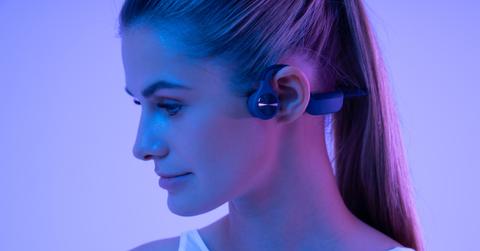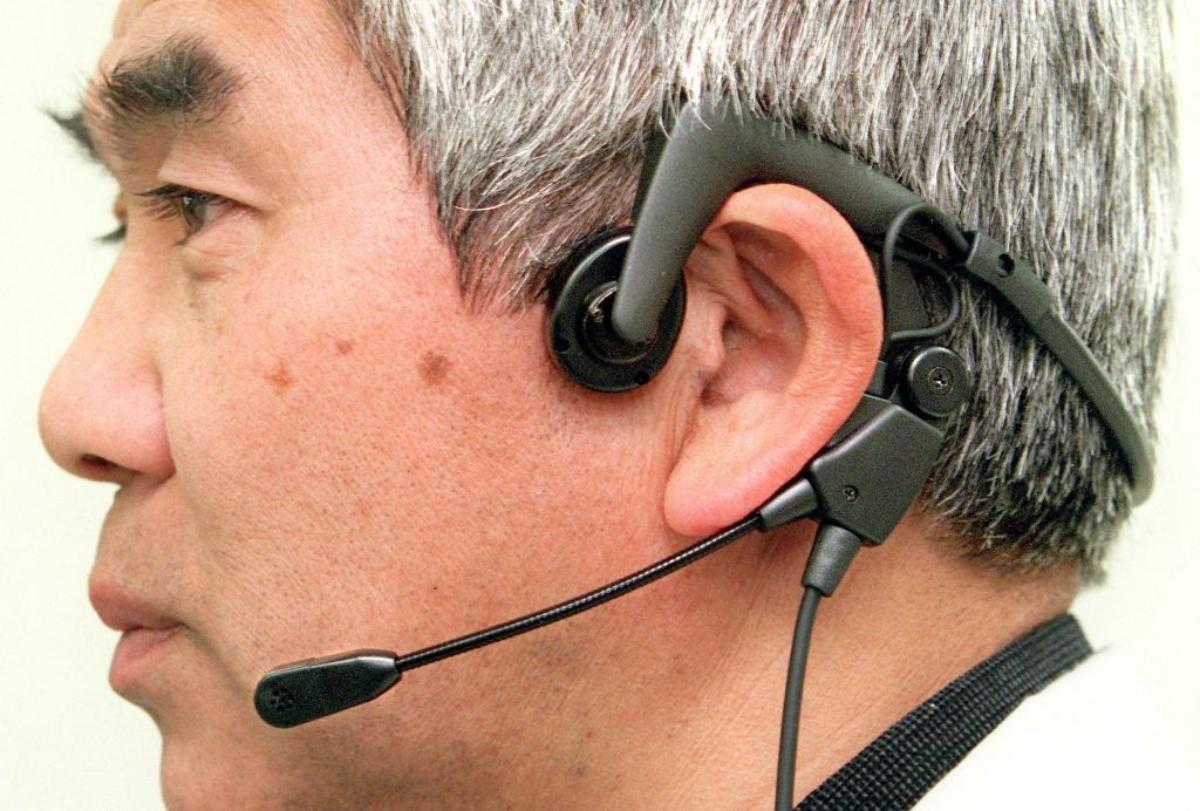Bone Conduction Headphones Work Differently, But Are They Safe?
Published Sept. 15 2023, 5:10 p.m. ET

High-quality headphones have made it possible to accomplish tasks like commuting, household chores, and exercising while also enjoying audio content like podcasts, audiobooks, and music. Since 2008, consumers have been able to purchase a different type: bone conduction headphones, which rest on the cheekbones instead of the eardrum.
Are bone conduction headphones safe and do they work as well as traditional headphones? If you're not familiar with the different types of headphones and earbuds, take a look at some of the features and potential safety hazards of bone conduction headphones.

What are bone conduction headphones?
Bone conduction headphones sound a little wild, but they're simply headphones that are worn sitting directly on the cheekbone or temple area instead of on or over the ear. Per SoundGuys, while traditional headphones cause eardrum vibrations that are passed to the cochlea (inner ear), bone conduction headphones send vibrations straight to the inner ear, mostly via skull bones. This lets the person hear music without covering the actual ear.
As PC Guide explains, these headphones began to appear on the market around 2008. One of the most popular brands is Shokz. Per Amplivox, bone conduction technology is also used for hearing assistance devices.

There are a few important advantages to using bone conduction headphones over their traditional counterparts. One of the main benefits is to users with hearing deficiencies.
As SoundGuys notes, traditional headphones can interfere with hearing aids, while bone conduction headphones are placed differently, avoiding hearing aids. These headphones may also be better for those with deafness in only one ear.
Are bone conduction headphones safe?
First, let's talk about some of the safety benefits you might experience with bone conduction headphones. One common circumstance in which they may be safer than traditional headphones is if you frequently walk or exercise outdoors, especially in a noisy city. Bone conduction headphones don't block outside noises from pedestrians and traffic, so the user is more aware of their surroundings and able to react to possible hazards.
Of course, the other big factor to consider in choosing headphones is protection to your ears and your hearing. So are bone conduction headphones safe from the standpoint of preventing hearing loss? Well, as Headphonesty notes, if a company claims their bone conduction headphones are guaranteed not to cause hearing loss, they're not being completely truthful.
The reason for that comes down to how you use your headphones. Whether you opt for traditional or bone conduction headphones, the reality is that improper use of either could lead to hearing damage due to long-term exposure to loud noises.
The CDC notes that hearing loss may happen as a result of a one-time exposure or long-term exposure to loud sounds or noises. Therefore, it stands to reason that using any headphones but keeping the volume up too loud could definitely harm your hearing. According to Soundly, "the overall volume is the key to headphone safety, regardless of air conduction or bone conduction."
Finally, consider the comfort level of headphones. According to Headphonesty, some users of bone conduction headphones have reported headaches, dizziness, or vertigo. This is likely due to where the headphones sit on your head and how they fit, so this is another reason to be mindful of your volume and how long you wear headphones, whatever the type.